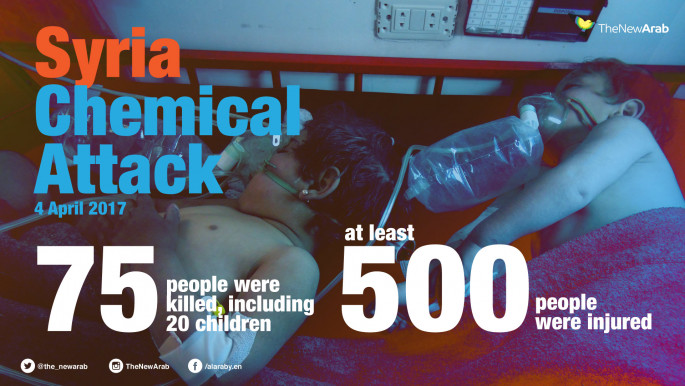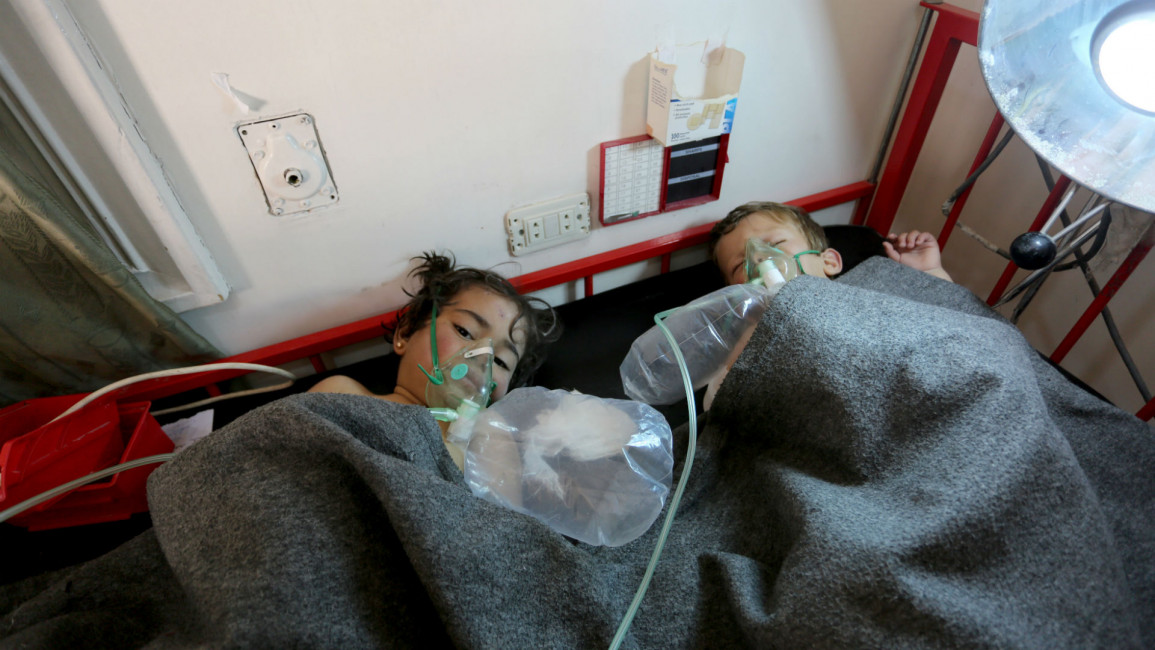UN blames Syrian regime for Khan Sheikhoun gas attack massacre
More than 80 people were killed on 4 April this year when sarin gas projectiles were fired into Khan Sheikhoun, an opposition-held town in the Idlib province of northwestern Syria.
Images of dead and dying victims, including young children, in the aftermath of the attack provoked global outrage and a US cruise missile strike on a regime air base.
Syria and its staunch ally Russia claimed that a rebel weapon may have detonated on the ground but the UN panel confirmed Western intelligence reports that blamed the regime.
"The panel is confident that the Syrian Arab Republic is responsible for the release of sarin at Khan Sheikhoun on 4 April 2017," the report, seen by AFP, says.
Russia criticized the UN report, saying it contained inconsistencies and unverified evidence.
"Even the first cursory read shows that many inconsistencies, logical discrepancies, using doubtful witness accounts and unverified evidence... all of this is still (in the report)," Deputy Foreign Minister Sergei Ryabkov told Interfax news agency.
On Tuesday Russia vetoed a US-drafted resolution that would have extended the mandate of a panel investigating who is behind chemical weapons attacks in Syria for another year.
 |
|
Human Rights Watch urged the international community to slap sanctions on the Syrian regime after the UN report.
"The (UN) Security Council should move swiftly to ensure accountability by imposing sanctions on individuals and entities responsible for chemical attacks in Syria," the New York-based rights watchdog said in a statement.
Ole Solvang, deputy emergencies director at HRW, said the panel's report "should end the deception and false theories that have been spread by the Syrian government".
"Syria's repeated use of chemical weapons poses a serious threat to the international ban against the use of chemical weapons," Solvang said.
"All countries have an interest in sending a strong signal that these atrocities will not be tolerated."
Pressure on Assad
The UN report will increase pressure on the Assad regime just as Washington renewed its called for the longtime authoritarian ruler to step down.
US Secretary of State Rex Tillerson's comments to reporters came during a visit to Geneva in which he met UN envoy Staffan de Mistura, who is trying to convene a new round of peace talks next month.
The secretary said US policy has not changed, but his remarks represented tougher language from an administration that had previously said Assad's fate is not a priority.
"We do not believe there is a future for the Assad regime, the Assad family," Tillerson said.
"I think I've said it on a number of occasions. The reign of the Assad family is coming to an end, and the only issue is how should that be brought about."
Russia reacted coolly to Tillerson's remarks, with UN ambassador Vassily Nebenzia saying "we should not pre-empt any future for anybody".
British Foreign Secretary Boris Johnson said the UN panel's report had reached a "clear conclusion" and urged the "international community to unite to hold Assad's regime accountable."
"I call on Russia to stop covering up for its abhorrent ally and keep its own commitment to ensure that chemical weapons are never used again," he said.



